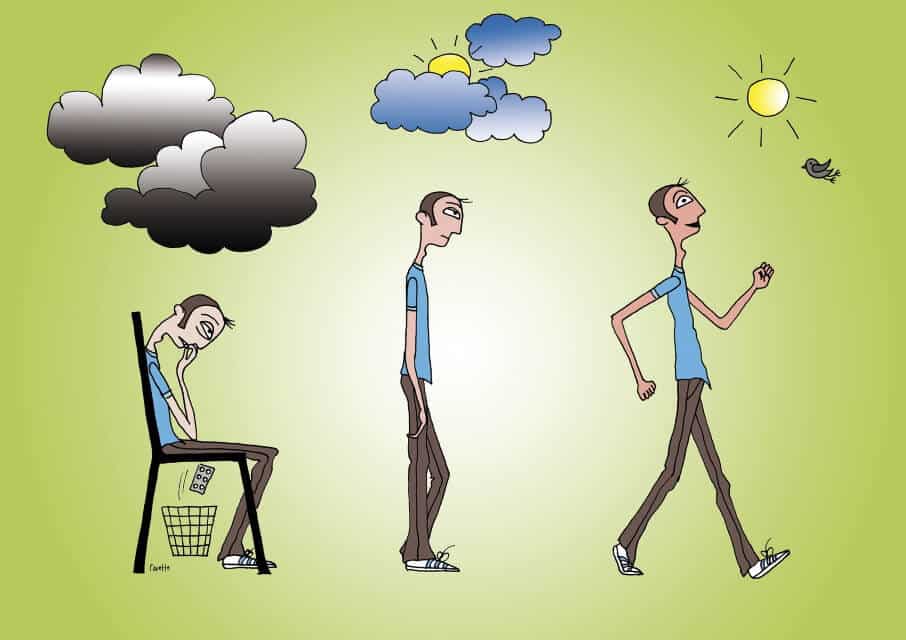Realising we need residential gambling rehab
The journey that a gambler takes from recognising the extent of their gambling problem to finally agreeing to getting help and being admitted to residential gambling treatment is usually a long, costly, and painful one. This journey will not only severely affect the gambler but also his family, friends and all aspects of all of their lives.
Someone with an alcohol or drug problem does not think that one more drink or taking another line of cocaine is going to make things right. They know that drinking or using drugs is really only adding to their problems. A gambler, though, can go through the mental process that this next bet could make things right and that is one of the reasons that it can take longer for a gambler to seek help.
Why gambling rehab is important
It has been proven that in order for a gambler to make changes to their thinking and behaviour they need to be away from their home environment for it to be successful. They need to be in a safe residential rehab or gambling rehab clinic that will not allow them access to the internet or computers or telephones or any means that would let them place a bet or have access to online gaming sites.
There are actually no specific clinics in the Country that are just for gamblers, offering help for gambling addiction. Therefore, the gambler will be in treatment with others who are there for different addictions such as alcohol and drugs. However, in many ways it does not matter what the addiction is, it is guaranteed that everyone is in treatment as their lives have become completely unmanageable and they will all be there wanting help.
Being admitted to gambling rehab
As with anyone being admitted to residential rehab treatment, they will be seen by a GP at the clinic and their health will be assessed and it will be confirmed if they are on any prescribed medication. If someone is in treatment for 28 days, then prescriptions may need to be renewed. At The Haynes Clinic, we often find that gamblers have been prescribed anti-depressants for their low moods due to their addictive behaviour having a severe mental impact.

It is rare for a gambler to need an alcohol or drug detox but sometimes individuals have used them to try and change how they are feeling and to block out the guilt, shame, anger and remorse. Generally, though, having been seen by a GP they will be able to immediately commence treatment. The vast majority of Clinics in the UK are 12 Step based and there are support groups that link with the 12 Step programme of Recovery. There is a specific support group for gamblers, Gamblers Anonymous.
The gambling rehab programme
The wording of the first Step of a 12 Step programme is “We admitted we were powerless over alcohol – that our lives had become unmanageable.” For a gambler it is very simply changing the word “alcohol” to the word “gambling,” and this would be the same with any addiction different to alcohol. Therefore, everyone in treatment is basing their Recovery on the 12 Steps and so no one feels different to anyone else in treatment.
The recognised residential treatment period is 28 days. However, there may be reasons why being in a rehab clinic for that amount of time is not possible. One of the reasons could be financial, simply the gambler has nothing left. If 28 days is not possible then 14 days could be considered but that reduced length of time in a safe environment is really too short and the chance of relapse is very high.
The other key factor around 28 days is that at The Haynes Clinic we offer Aftercare for one day a week, following discharge from treatment, for at least 12 months at no extra financial cost. This additional support can make all the difference to someone remaining in Recovery. There is a clear trust and recognised support between those in treatment and therapy and support staff and this is critical with ongoing care from Aftercare and working the programme of Recovery.
Whilst in treatment, the days follow a structured timetable and will comprise of group discussions and presentation of written work around the individual’s understanding of the 12 Steps and a help with strengthening that understanding from qualified therapists. There will also be written work on the individual’s journey to getting into treatment and this will be a help in the breaking down of the denial of the extent of gambling addiction problems.
Family involvement in gambling rehab
Family members are not forgotten, and we feel it is important to help them with an understanding of the treatment programme and the nature of gambling addiction and they are actively encouraged to be involved in the process. They can make an extremely valuable contribution. It is very important that they do not feel left out and are aware of their roles when the individual leaves treatment and the family become supportive with the Recovery goals.
Attending gambling support groups
Whilst in treatment, there will also be the regular attendance of support groups. This is quite important, not just for actually attending but by going as a group and seeing and understanding the importance of supporting one another as a group.
In residential gambling treatment we start to work as a group and learn to accept that with gambling addiction, in order to make changes, we need the help and support of others who understand. It shows us that we do not need to continue to struggle on our own and with the help of others we can move forwards, in a positive manner, to start to get well. This is what residential gambling treatment offers that being in a home environment cannot.
